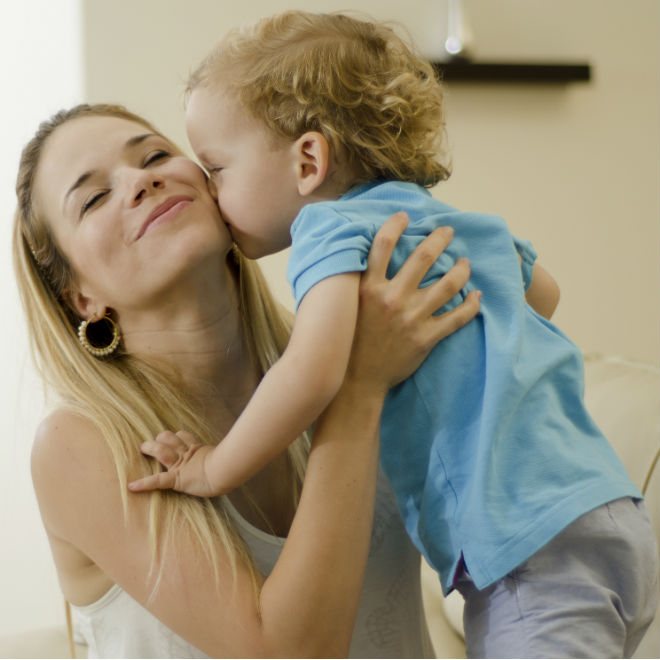Many people are familiar with the problem of constipation firsthand. And for each person this problem develops for its own reasons and has individual characteristics. The most common factors that cause difficult bowel movements are gastrointestinal diseases, dietary disorders, or side effects when taking certain types of medications. But not everyone knows that in certain cases psychological constipation occurs. We will look at what it is and how to deal with it in this article.
Psychogenic constipation and its main differences
This type of constipation, as a rule, does not have any physiological reasons for its occurrence. It is based primarily on psychological and psychosomatic factors that cause bowel problems. And in such cases, the problem has to be resolved with doctors in the appropriate field - a neurologist or psychotherapist.
The causes of psychological constipation may be the following:
- Diseases affecting the functioning of the nervous system.
- Getting into various stressful situations.
- Irritable bowel syndrome.
- Frequent travel and transport, especially if a person cannot normally visit the toilet in an unfamiliar place.
- Mental illnesses.
- Unstable work schedule, due to which there is no habit of stable visits to the toilet at approximately the same time.
How to help get rid of fears
First of all, parents must understand that children’s anxiety states do not go away with the help of force and punishment. They will only get worse, and the problem will grow.
It is necessary to show the child that the whole family supports him and understands the children's concerns. The method with fairy tales works very well. For example, a mother tells her child a story about a little “cuckoo” who loves to go for walks, but the baby won’t let her out. Then she gets offended and begins to hurt the baby’s tummy. And if the baby lets her out into the street, then she will be kind, and he will no longer get sick.
Playing with plasticine is also very helpful. During such activities, the child’s muscles completely relax, he is distracted from his fears and can easily go to the potty.
How can you tell if constipation is psychological?
Not every person takes into account such a fact as psychosomatics. Therefore, he tries to look not for psychological reasons, but for disturbances in the functioning of internal organs.
In this case, the first indicator that the patient has nervous constipation is the satisfactory condition of all his internal systems.
Constipation due to stress can be diagnosed independently if the following signs are present:
- when staying in completely new places, a person tries not to use the toilet;
- attempts to empty the bowels outside the home do not bring results, despite the fact that bowel movements are easier at home.
These indicators suggest that constipation occurs due to stress caused by a new place or simply self-restraint from visiting toilets outside your own home.
How to cope with psychosomatics faster?
Two points are important: getting to the exact cause and choosing the right psychological techniques. If you break down all the work into stages, then it would be more advisable to go this way:
- determine the initial situation,
- specify the root emotion (anger, guilt, shame, grief - each has its own),
- select appropriate psychological techniques,
- check the correctness of their implementation,
- adjust the emotion (develop new reactions to provocations).
Moreover, you can take the first step to find the cause today. To do this, take our test:
Take the test
Example : you can read for a long time about constipation - that these are mental blocks, dislike for yourself. But in 95% of cases it appears in a state of choice, in limbo. If you have basic mistrust and anxiety, constipation becomes chronic and worsens during the period of choice.
Consequently, situations with choice will never end, but the attitude towards them can be changed using psychotherapeutic methods.
What do the majority do?
They study the theory, but do not achieve improvement.
The fact is that working independently with your unconscious requires a lot of preparation.
Do you need a specialist?
It will just be faster with him. It’s possible to cope on your own, but only a few can do it and it takes a long time.
In my practice, the time frame varied from 1 consultation to a year. The most common cases are:
- headache,
- Gastrointestinal tract,
- gynecological problems,
- lungs,
- childhood illnesses through parents and others.
You can find out about working with me here.
I wish you health and psychological comfort.
Causes
Most often, psychological constipation occurs in adults, especially if they spend a lot of time in public view and psychologically cannot afford to leave due to a great natural need. But this is only one of a number of possible reasons. Usually, the exact cause-and-effect relationship in which constipation occurs due to stress is difficult to immediately determine.
The specialist may need a more complete list of symptoms. Moreover, it should affect both psychosomatics and physiology.
The following features may be important in making a diagnosis:
- loss of appetite;
- insomnia;
- stomach ache;
- flatulence;
- headache;
- increased gas formation, etc.
Drug treatment
In extreme cases, you can resort to the use of medications. How to treat psychological constipation in a child? According to the recommendations of pediatricians, in such cases, drugs that contain lactulose can be used.
Duphalac is considered the most popular at the moment. It is sold in bottles or single-use packaging. The syrup has a pleasant taste and is practically colorless. This means that no dyes are used in production.

According to the instructions for use, Duphalac is prescribed to children from the first month of life. In the first three days, the dose for children from 1 to 6 years old should be at least 5 ml per day. Then, little by little, it can be reduced until the expected result is achieved over several days, or even a week. Children under one year old are given up to five milliliters of syrup.
The instructions for use for Duphalac (it is often prescribed for children) indicate that lactulose is not absorbed into the blood and is completely excreted in the feces. This substance increases the volume of feces, as a result of which it becomes difficult for the child to restrain himself and natural bowel movements occur.
How to overcome the disease?
Let's consider several options for solving the problem, the first of which is following a diet designed to help the body cope with this problem. In order to compile it, you don’t have to contact a nutritionist; you just need to know the list of foods that are acceptable for consumption. And also those foods that are extremely undesirable to eat:
What you can include in your diet:
- fiber, bran bread;
- seafood, low-fat fish;
- smoothies, homemade fresh juices or compotes;
- soups with light broth or vegetable base;
- dairy products;
- vegetables, especially zucchini, carrots, pumpkin and broccoli;
- berries and fruits such as prunes, plums, apples, figs, apricots, etc.
What you should not use to avoid worsening the situation:
- mushrooms;
- baked flour products, sweets;
- fat milk and dairy products;
- spices and fatty sauces;
- omelettes and boiled eggs;
- pasta and rice;
- fatty and rich soups with strong broths;
- alcohol, strong tea and coffee;
- partially vegetables - onions, garlic, radishes;
- partially fruit - pears, blueberries or quince.
In cases where it is not possible to consistently monitor your diet, you can use some medications sold in pharmacies that help solve the problem of constipation.
These include:
- Candles with sea buckthorn oil. Used for difficult bowel movements and help get rid of hemorrhoids. Do not use for diarrhea or hypersensitivity to components. Cost - about 100 rubles. for 10 pcs.
- Weak. Drops are used for constipation and help normalize stool. But you should treat its use very carefully, since there are the following contraindications: acute inflammation in the abdominal cavity, bleeding, age under 4 years, intestinal obstruction, first trimester of pregnancy, etc. Cost - from 90 to 120 rubles.
- Senalex. Tablets for constipation, regulating stool. Contraindications: spastic constipation, impaired water metabolism, bleeding from the gastrointestinal tract, etc. Cost less than 100 rubles.
- Duphalac is a syrup used to improve bowel movements. Side effects - intestinal obstruction, individual intolerance to glucose, lactose or fructose, galactosemia. Cost - from 250 to 500 rubles.
- Motilium. Strictly a prescription drug that you can buy after a doctor's prescription. Contraindications - intestinal obstruction, ulcers, intolerance to components, bleeding in the gastrointestinal tract, 1st trimester of pregnancy, lactation, etc. Cost - about 350 rubles.
Folk remedies have been known for a long time and help to cope with various diseases, even if it is not possible to purchase pills.
But, since a person may have an individual negative reaction to one or another component in the product, it is better to approach these recipes wisely and do not forget to consult with your doctor.
- It is useful to drink a tablespoon of sunflower or olive oil on an empty stomach in the morning. It will lubricate the intestines and help the body move normally.
- You can also use the “window sill plant” - aloe. You can take it from yourself or ask your friends or neighbors. You need to take 3-4 leaves, keep them in the cold for 14 days, and then chop them. The resulting juice is mixed with the juice of 1 lemon and a small amount of honey. The mixture is taken on an empty stomach in the morning, 1 tsp.
- The following collection also helps with constipation - 20 g of flaxseeds, the same amount of marshmallow root, 10 g each of buckthorn bark, licorice root and fennel fruit. Mix all the ingredients, then measure it out into 10 g pieces and mix with 250 ml. water and keep in a water bath for half an hour. Strain the resulting broth and add to 250 ml. At the end of the last meal, take half a glass.
- You can use the juice from sauerkraut to normalize stool output. To do this, take a glass of liquid before breakfast and dinner on an empty stomach.
- An equally effective remedy is bran. To brew them, you need to pour 2 tbsp into a thermos. l. bran, then pour a glass of heated milk over them and leave to infuse for 30 minutes. Take ½ glass of liquid in the morning and evening. Duration of treatment is a month.
conclusions
What to do if your child is afraid to poop? The answer is clear: surround him with care and affection. For the baby, you need to organize a proper, balanced diet, increase the number of walks in the fresh air and, if necessary, use Duphalac or its analogues.

In this case, psychological tension regarding this issue will subside for both the baby and the parents. Gradually, the process of defecation will improve, and peace and tranquility will be restored in the family.
Constipation in children
Nerves can cause constipation not only in adults, but also in children. Sometimes, due to the unstable course of certain processes, defecation can be painful and cause fear, which ultimately develops into psychosomatics. Most often, psychosomatic constipation occurs in children aged 2 to 4 years, but also occurs in kindergarten and primary school.
To achieve positive results on your own, you should first contact a gastroenterologist for tests, after which, if necessary, a course of treatment will be prescribed. Additionally, the doctor may prescribe a diet.
It is useful to instill psychological confidence in a child. Games and praise are good for this.
We highly recommend watching the video about this
Why is there a fear of the potty or toilet?
The child does not go to the toilet regularly. Why does this happen and how to deal with it? Problems with constipation first begin at the age of 2-3 years. During this period, parents actively begin to teach the baby to go to the potty when needed.
A 2-3 year old child already understands the need to relieve himself naturally, but does not yet fully understand the physiology of this process. Many kids consider this process shameful. Of course, such an opinion could not be developed independently.
Most often, this means that there are jokes or unpleasant statements about this process in the family. It happens that, leaving the toilet, dad receives a remark from mom that the smell spreading through the apartment is far from pleasant. A man can laugh it off, but the child, on a subconscious level, “writes down” that going too big can get you reprimanded.
Problems with stool often arise when adults begin to teach a child to use the toilet instead of a potty. All these devices on the toilet seem dangerous to the baby. And the biggest fear is a hole that goes nowhere: “I will definitely fall.”
Psychology of meditation and other relaxation techniques
To reduce the influence of psychosomatics on the functioning of the digestive system, it would not be amiss to turn to such well-known techniques as meditation, yoga exercises, affirmations and other relaxing exercises. They will help restore the normal state of the nervous system and lead to a decrease in its effect on the gastrointestinal tract.
Let us give an example of the most famous yoga poses, which many may know from personal experience, but have no idea that they belong to well-known exercises.
- Child's pose. It is used by many to ensure the release of excess gases that create discomfort in the abdominal area. Additionally, when performing it, the necessary muscle groups relax and you can quickly achieve the desired result when going to the toilet. Plus there is a certain pressure on the stomach, which promotes the release of feces. To do this, you need to sit on the floor and bend your legs so that your buttocks rest on your heels. Then, at the exit, bend over and lie with your torso on your thighs. The arms are extended forward and placed on the floor. Stay in this position for at least 30 seconds. It’s better to stretch so that your torso and shoulder blades stretch.
- Plow pose. From a lying position on your back, you need to lift your torso up, standing on your shoulder blades, and then smoothly lower your legs so that your feet touch the floor. Place your hands on the floor along your body. Lie in this position for 15 seconds.
- Cobra pose. From a lying position on your stomach, place your palms next to your chest. Then, while inhaling, lift your torso up, keeping your legs on the floor. Stand on straight arms for a few seconds, then lower yourself. Repeat several times.
Word to the doctor
A modern civilized person, fashionably dressed, independent, well educated, successful, with the latest model of gadget in his hands and a small, nimble monkey with a funny beard and nimble beady eyes. These different and so similar subjects, besides Darwin and his theory of evolution, have a common feature: each of them consists of the material that he ate some time ago. Consequence: part of a person is also what he could not, for some reason, bring out in time. This is probably why we tend to dramatize our existence, are often frightened by problems, such as psychological constipation, and become despondent over trifles.
After all, what happens completely naturally and naturally in a horse, in us, the adult crowns of creation, is hidden behind seven seals and surrounded by almost mystical rituals. Of enormous importance in the lives of some is the participation of others, acquaintances and not, in how they went to the toilet; How exactly does a situation in which a person finds himself with a sudden desire to go “due to a great public need” allow this to be done? Public opinion has invaded the most intimate sphere of man. It’s strange, because the process of absorbing food and excreting undigested residues is the very essence of metabolism and an integral part of life. And the pleasure from a good bowel movement is difficult to describe: timely, fast, comfortable, and effective, comparable to the pleasure of eating.
The cerebral cortex is working on this whole large and complex problem, more precisely, the paracentral lobe in the depths of the frontal gyrus, which in humans controls the process . Defecation requires the participation of the ancient centers of the medulla oblongata, which lie deeper. In fish and amphibians, these centers themselves command “to go out” when the time comes. In animals, the inhibitory influence of the young active cortex already appears. Predators have learned to “tolerate” when prey appears nearby, and herbivores have the opportunity to defecate while running.
In our country, a person, becoming an adult, learns to control this process, to subordinate it to his will. And the main work of adults is to curb and restrain, since defecation is stimulated in the toilet, and sometimes it is necessary to restrain it at any other time of the day.
Often, excessive concentration on the process of emptying interferes with the natural course of events and can itself cause constipation. Immersed in reading on the toilet, sometimes you can “surrender” to chance, relax, “put to sleep” the cerebral cortex, and get a significant effect.
Lifestyle
Since the main influence on the development of psychological constipation is caused by stressful situations and possible disturbances in the functioning of the nervous system, this requires certain behavior on the part of the patient. In particular, try to expose yourself to less stress and, if possible, choose a job with less travel and a clearer schedule. Then you can develop the habit of having a bowel movement at approximately the same time. A visit to a neurologist and psychotherapist will also help to establish psychological factors influencing the disease.
Psychosomatic constipation can be caused by various reasons. And even if initially all body systems were healthy, there is a possibility of developing additional problems with the digestive system and not only that, which will be caused by constipation due to nervousness. Therefore, you need to try to adapt to the body so that it functions well and calmly.
Prevention measures
General measures to prevent the occurrence of disorders during bowel movements, as a rule, include control over nutrition, maintaining a healthy lifestyle, and maintaining water balance. As for preventing psychological constipation, it is important to focus on your psychological state. Parents of young children should especially think about preventing this type of constipation. How they carry out the process of potty training the baby will determine his further psycho-emotional state.
Andrey Yurievich
Ways to deal with nervous constipation
Treatment is always complex. Despite the fact that the reasons lie in the nervous system and consciousness of the baby, the problem of defecation also causes somatic disorders. Therefore, after diagnosis, several methods are used simultaneously.
Working with a psychologist
The first step in eliminating nervous constipation is consultation with a child psychologist and attending sessions. Sometimes fears are suppressed so much that a simple conversation or a change in parental attitude does not eliminate the problem. A psychologist helps to identify the true cause of the fear of defecation and, using various techniques, teaches the child to fight fears.
In situations where pathology is provoked by errors in upbringing or parental conflicts, counseling may be needed not only for the child, but also for his parents.
Drug therapy
Since holding back the urge causes hardening of the stool and severe constipation, it is important to induce bowel movements as quickly as possible, cleanse the intestines and establish normal peristalsis. For this we use:
- enemas;
- candles with sea buckthorn oil;
- drugs in tablet form;
- drops and syrups;
- vitamin supplements.
All laxatives are prescribed for a short period of time (check with your doctor) to avoid addiction to the medicine.
Emotional support for parents
With psychological constipation, it is necessary to remember that its occurrence is associated with the characteristics of each individual child. The choice of means should not frighten the child, otherwise it will only aggravate the problems.
We recommend reading:
How to properly do an enema with an Esmarch mug to cleanse the intestines?
Parental affection and love, explaining the need to take pills or syrups will help much better than a forced enema. The baby should be set in a positive mood and helped to believe that going to the toilet will no longer be associated with pain or discomfort.
Diet
A properly composed diet will allow your child to quickly cope with fears, because going to the toilet will become simple and painless. The following products help ensure normal peristalsis:
- compotes based on dried fruits;
- fresh juices;
- foods rich in fiber;
- kefir and cottage cheese in limited quantities;
- pure water.
At the same time, you should limit sweets, meats with a high fat content, and smoked foods. The beloved, but extremely harmful for children, “fast food” must be completely abandoned. There is a strict taboo on snacks, chips and analogues.
Daily regime
In addition to maintaining health, a constant and structured daily schedule provides the child with a sense of safety and security. It is important that the morning begins with simple and fun gymnastics.
During the day, quiet activities should be interspersed with active games and walks in the air with the opportunity to run, jump and climb on playgrounds in playgrounds.











